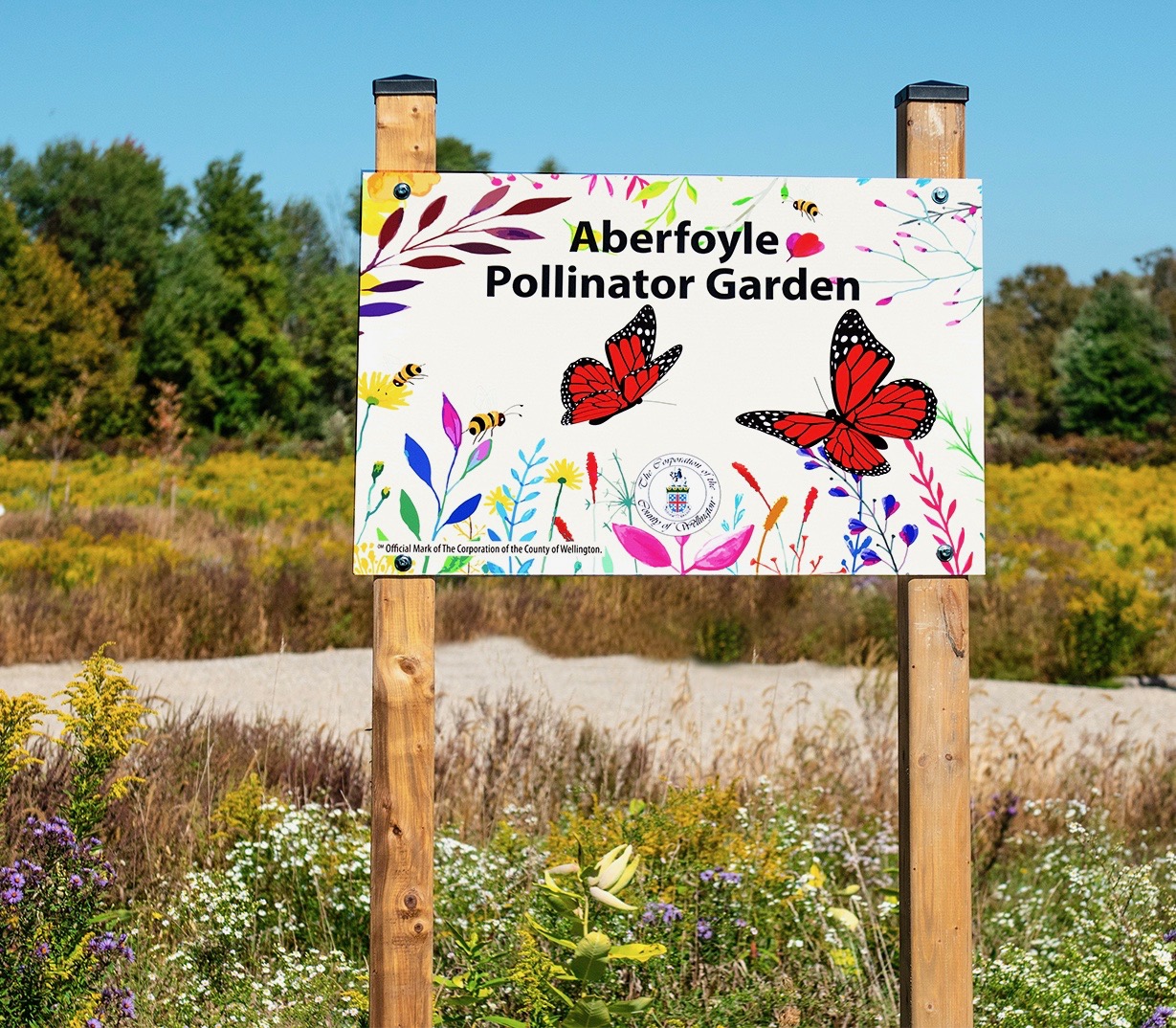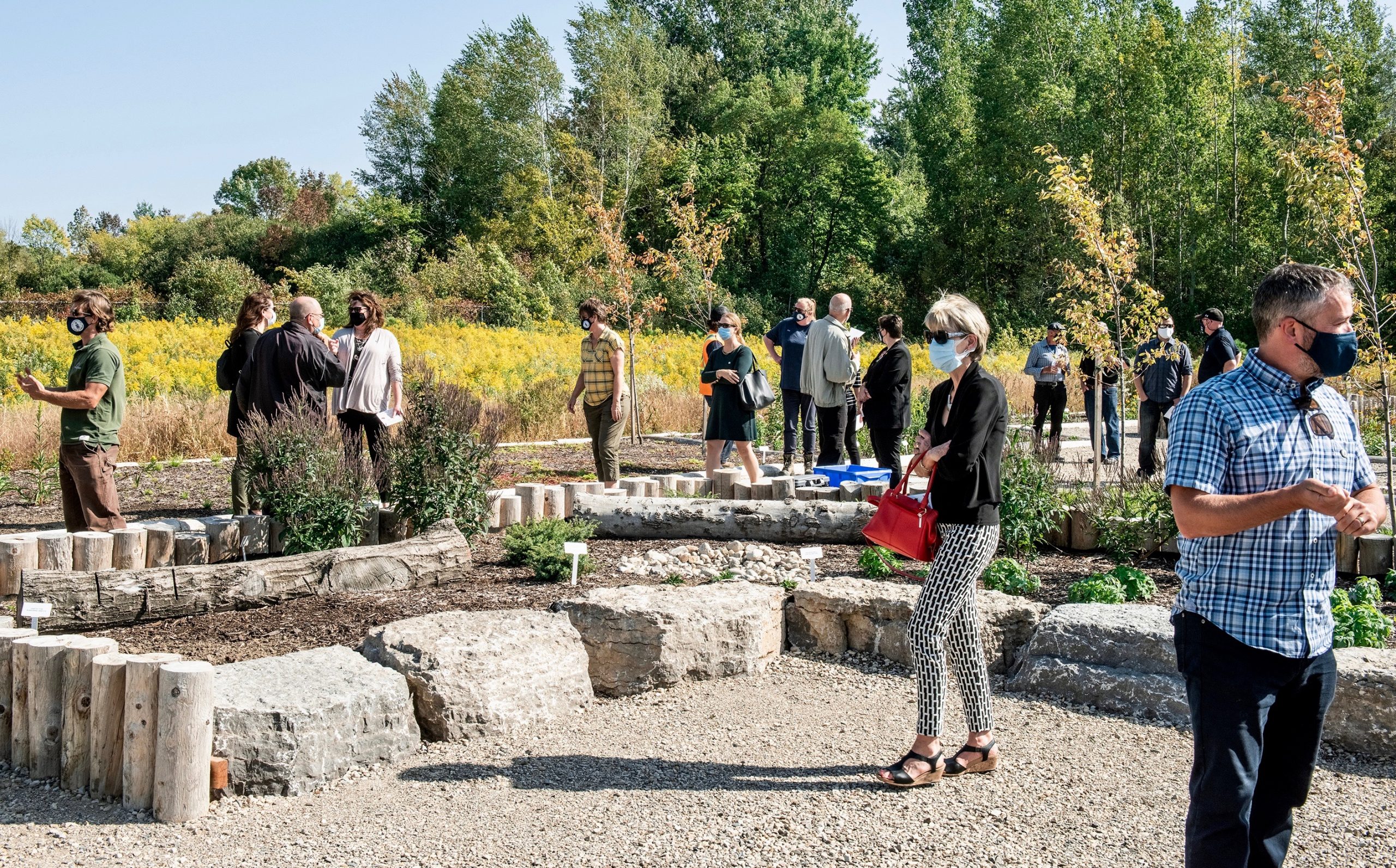ABERFOYLE – The County of Wellington officially opened the Aberfoyle Pollinator Garden on Sept. 23.
“Pollinating insects and birds provide a critically important ecosystem service,” said Warden Kelly Linton.
“It’s estimated that one third of food crops at least partially rely on insect pollination and 80% of wild flowering plants would not exist without pollination.
“Pollinators are essential to the agricultural sector, with managed and wild pollinators contributing an estimated $1 billion annually to Ontario’s economy.”
Officials say that as part of the solid waste services strategy, closed landfill sites will undergo ongoing naturalization efforts, with particular emphasis on establishing pollinator habitat.
Pollinator habitat has been promoted through the planting of flowering trees, shrubs and wildflowers at the Riverstown landfill and at the Arthur closed landfill site in recent years.
The Aberfoyle Pollinator Garden includes 30 varieties of trees, shrubs, perennials and grasses, comprising of 1,788 plantings.
Officials say all species are attractive to either butterflies, moths or bees for pollination or as a food source for larvae.
The native plant species all have a relationship with specific insects, including: Columbine duskywing, silvery checkerspot, painted lady, mulberry wing, winged skipper, Arctic skipper, little wood satyr, monarch butterfly and more.
“Areas were created for water to collect in accessible locations for insects, bare areas were established for native bees to tunnel and nest, and tree trunk sections were integrated as habitat for larvae,” explained Gregg Davidson, chair of the solid waste services committee.
“We have also created an outdoor classroom area for school and community groups to learn about the importance of pollinator species in our ecosystem.”
Studies on pollinator populations suggest there is a large decline in their numbers due to a variety of factors that impact their health.

(Submitted photo)



